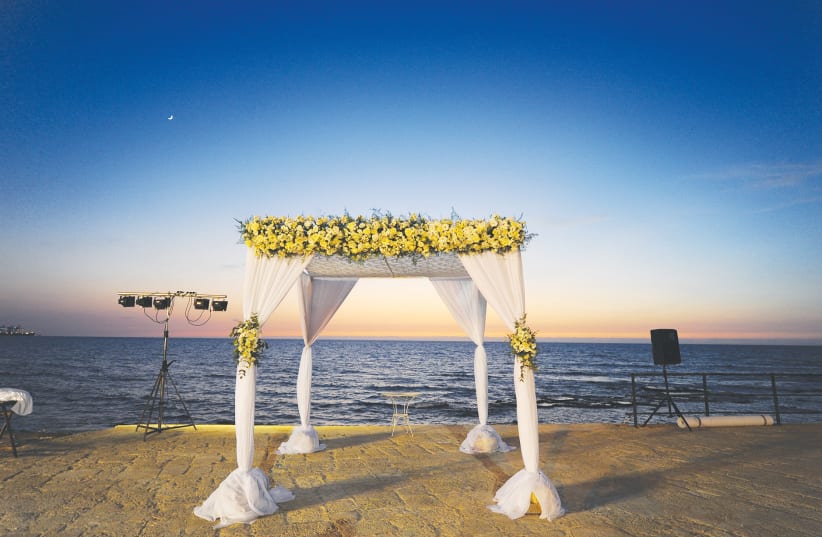Thousands of couples who were forced to cancel their wedding plans due to the novel coronavirus are not entitled to get their deposits back, the High Court of Justice ruled Sunday.
Under normal circumstances, the law requires owners of wedding halls to refund deposits in full immediately if they are unable to host the scheduled event. However, nearly a year after the coronavirus outbreak began upending regular life, the court ruled that the law will not apply for agreements that were signed after March 12, 2020.
Several months ago, a law was passed that would require wedding-hall owners to return all deposits within three months. The Association of Event Halls and Gardens in Israel petitioned the High Court, saying there were problems with the interpretation of the law during the pandemic. The owners were unable to pay out such large sums after a year of no business, their petition said.
On Sunday, the court accepted their position and said it would not get involved with the legislation.
Many hall owners have already returned the deposits they received, a spokeswoman for the association said. Most of the owners who have not yet returned deposits intend to do so eventually, but they currently don’t have the money, she said.
Deposits for events booked before March 12 must be returned, the court ruled.
“Due to the shutdown of the industry by the state, event-hall owners suffered a fatal economic blow,” said Aviram Alon, head of the Association of Event Halls and Gardens. “Event halls provide for tens of thousands of workers directly and hundreds of thousands more in sectors that support the industry. Anyone can understand the difficulty of reimbursing expenses incurred for event preparations while receiving zero income over almost an entire year due to the industry shutdown and the coronavirus crisis.”
As the scope of the pandemic began to become clear last March, Israel began limiting weddings to 10 guests, forcing many couples to transform what would have been large events with hundreds of guests into intimate family affairs.
Some hall owners gave full or partial refunds for deposits made for wedding celebrations that never happened, and many cases are still unresolved.
Following the ruling, the association called for hall owners and couples to work together to reach agreements to hold wedding celebrations on alternate dates and help bring Israel’s wedding-hall industry back to life.
